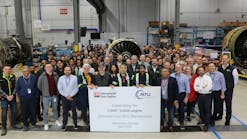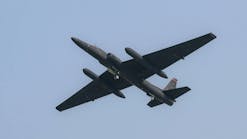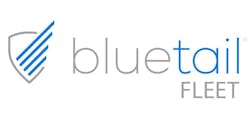Duty Free Americas, a Hollywood firm with stores at 12 U.S. airports, and whose parent company owns French designer label Christian Lacroix, will likely be the next operator of Miami International Airport's tax-free stores.
The company, owned by three brothers who grew up in Miami Beach and made their money in the perfume business, beat out three other contenders -- each with local political ties -- to win an airport evaluation committee's recommendation. MIA is now working on a contract for the 12 stores, to be presented to the Miami-Dade County Commission in September.
As an international gateway, MIA's duty-free business is among the most significant in North America, ranking fifth in gross revenue in 2004, according to Airport Revenue News, a monthly trade magazine published in Palm Beach Gardens. About seven million international passengers fly out of MIA each year.
''If there is one airport we wanted to do business in, it's Miami airport,'' said Simon Falic, 44, the oldest of the three brothers, and chairman of Duty Free Americas. ''We look forward to finalizing the contract as soon as possible and opening the stores as soon as possible.''
The duty-free shops will span MIA, from the North to the South terminal. Brightly lit, with an open layout and merchandise displays, the tax-free shops promise to be well-stocked, have longer hours and offer promotions to attract more customers and boost sales, said Joe Kearney, Duty Free Americas' vice president of business development.
The majority owner of the existing duty-free operator at MIA -- Starboard Cruise Services, which is owned by international luxury brand maker LVMH -- opted not to bid this time, citing financial reasons. Its contract for eight existing stores expires at the end of November.
Duty Free Americas, purchased and renamed by the Falic brothers in 2001, operates a total of 85 shops at airports, including New York's JFK, Chicago O'Hare, Washington Dulles and Boston Logan, and along the U.S. borders. Among its Latin America airport shops are those in Maracaibo, Venezuela; Panama City, Panama; and Medellin, Colombia.
''It was a combination of their technical expertise to do what they say they can do, the look of the design, and the experience factor of having worked in a variety of airports, that helped make this our recommendation for award,'' said Patricia Ryan, MIA's manager of commercial operations, and a member of the airport's evaluation committee.
The company also bid more money. Duty Free Americas Miami offered a minimum annual guarantee to the airport of $20 million -- topping the $18.5 million offered by Dufry Miami Retail Partnership and about $9 million more than two other contenders, Worldwide Duty Free Retailer, and Miami Duty Free.
The new concessionaire also must pay about $9 million in construction costs to build out the stores.
'A Little High'
''It's a little high,'' said Pauline Armbrust, publisher of Airport Revenue News, of the $20 million minimum annual guarantee. ''But obviously Miami is a great airport for duty free, and I'm sure they are planning to drive sales and meet those revenue targets.''
Falic said he did not overbid, and feels confident the company can make the payment and still earn a profit.
In fiscal 2004, by comparison, MIA earned $13.6 million from the current duty-free concessionaire, including $8.9 million in minimum annual guarantee, $3.3 million in rent and an additional $1.4 million, based on a percentage of revenue.
In an airport known for heavy lobbyist influence, Duty Free Americas hired two to support its proposal, Alan Becker of Becker Poliakoff, and Miguel Diaz de la Portilla, of Adorno & Yoss. Falic declined to say how much the company has paid them in fees.
Partners
Duty Free Americas is partnering with two minority firms on the Miami contract. Concourse Concessions, a Los Angeles company owned by an African-American woman, has operated two duty and tax-free stores at Los Angeles International Airport for 16 years, and two stores at Washington Dulles for nearly two years.
Siboney Wine & Spirits Merchants is owned by Miami resident Jaime Alonso, who has been a wholesaler of wines and liquor to the Caribbean and Latin America for 10 years.
Neither has had business ties to MIA.
Duty Free Americas will own 70 percent of the Miami airport contract, Concourse Concessions, 20 percent, and Siboney 10 percent.
The firm's proposal promises to top the existing duty-free stores' revenue. The current operator's eight stores last year generated $38.8 million in revenue, or $1,861 in revenue per square foot, on 20,937 square feet.
Duty Free Americas projects it will boost revenue on its 12 stores to $85 million, on 35,841 square feet -- or $2,372 per square foot -- by 2008. By 2015, it projects $118 million in revenue.
''Miami airport has a strong Latin base, and Europeans,'' Falic said. ''And we're going to gear our merchandise and sales staff to try to accommodate the main customers.''
Duty-free shoppers will find stores outfitted with cosmetics boutiques featuring Estee Lauder, Clinique, Lancome and Christian Dior; luxury boutiques by Hermes, Cartier, Fendi and Ferragamo; and premium liquor boutiques showcasing Jack Daniels, Johnnie Walker and Tanqueray, according to the proposal.
Catering to MIA's special mix of nationalities, the stores will also feature brands that are popular in certain countries, like Cacique rum, Pisco and Heradura tequila, the proposal says.
Eligible Shoppers
Only passengers holding boarding passes on international flights out of Miami can shop at the stores.
The Falic brothers, who each live in Bal Harbour, primarily made their money in the perfume business. Simon Falic was a co-founder and at one time chairman of discount perfume retailer Perfumania, which was also founded by his brother-in-law Ilia Lekach. Falic was also a large shareholder of Fort Lauderdale fragrance manufacturer Parlux Fragrances, which Lekach heads as chairman. Falic said he is no longer a shareholder of either company and no longer has business ties with Lekach.
Falic was familiar with Duty Free Americas' company's predecessor, because Parlux had been a vendor to the south border stores of Duty Free International for several years. In October 2001, the Falic brothers bought Duty Free International, and renamed it Duty Free Americas. In November 2003, they moved the company from Glen Burnie, Md., to Hollywood.
In fiscal year 2005, Duty Free Americas generated $13 million in profit on $354.2 million in revenue. Of that, $98 million in revenue came from airport duty-free stores, according to financial statements in the proposal.
In addition to Duty Free Americas, the Falic Group bought French couturier Christian Lacroix in January from LVMH. The company also bought cosmetic labels Urban Decay and Hard Candy in 2002. The duty-free stores will sell items from those brands, as well as Christian Lacroix accessories like ties and scarves, Falic said.
''They have done a phenomenal job in the industry since they have moved into the business,'' said Lois Pasternak, editor and publisher of Travel Markets Insider, of Duty Free Americas. ''The industry thinks extremely highly of them.''




